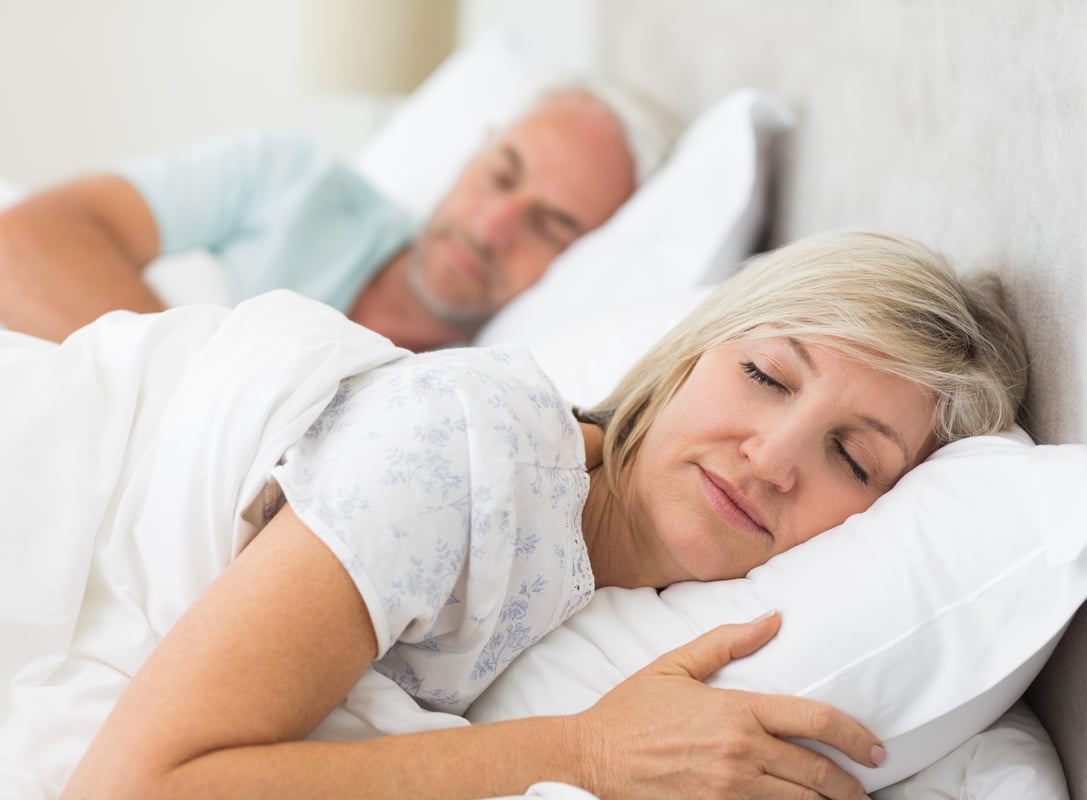Is Good Sleep Tougher to Find in Winter? Morning Light May Help

WEDNESDAY, Dec. 14, 2022 (HealthDay News) -- If you want to get some good sleep at night, be sure to get outside for a bit during the day, even if it's cloudy.
That's the advice of researchers at the University of Washington in Seattle, where overcast skies are common and daylight is limited in winter.
Studying student sleep patterns, investigators found that UW students fell asleep later in the evening and woke up later in the morning during winter.
Exactly why wasn't clear, but the researchers theorized it was because students received less light exposure during the day. Getting insufficient daylight leads to problems at bedtime, other research has shown.
"Our bodies have a natural circadian clock that tells us when to go to sleep at night," said senior author Horacio de la Iglesia, a UW professor of biology. "If you do not get enough exposure to light during the day when the sun is out, that 'delays' your clock and pushes back the onset of sleep at night."
To research this, the study used wrist monitors to measure sleep patterns and light exposure for more than 500 undergraduate students from 2015 to 2018.
Students got about the same amount of sleep each night regardless of season. However, on winter school days, they went to bed an average of 35 minutes later and woke about 27 minutes later than on summer school days.
Seattle, a high-latitude city, receives nearly 16 hours of sunlight on the summer solstice, but just over eight hours of sunlight on the winter solstice.
"We were expecting that in the summer students would be up later due to all the light that's available during that season," de la Iglesia said in a university news release.
The team focused on light as a potential explanation for why the UW students' circadian cycles were running up to 40 minutes late in winter compared to summer. The innate circadian cycle governs when we're awake and asleep, researchers explained. It is about 24 hours and 20 minutes long and calibrates itself each day based on external input.
"Light during the day -- especially in the morning -- advances your clock, so you get tired earlier in the evening, but light exposure late in the day or early night will delay your clock, pushing back the time that you will feel tired," de la Iglesia said. "Ultimately, the time that you fall asleep is a result of the push and pull between these opposite effects of light exposure at different times of the day."
Daytime light exposure had a greater impact than evening light on the students, the study showed.
Each hour of daytime light moved up the students’ circadian phases by 30 minutes. This happened even if it was cloudy or overcast. That natural light is still significantly brighter than artificial indoor lighting, de la Iglesia said.
Each hour of evening light from indoor sources like lamps and computer screens delayed circadian phases by an average of 15 minutes.
"It's that push-and-pull effect," de la Iglesia said. "And what we found here is that since students weren’t getting enough daytime light exposure in the winter, their circadian clocks were delayed compared to summer."
Everyone can benefit from this data, not just college students.
"Many of us live in cities and towns with lots of artificial light and lifestyles that keep us indoors during the day," de la Iglesia said. "What this study shows is that we need to get out -- even for a little while and especially in the morning -- to get that natural light exposure. In the evening, minimize screen time and artificial lighting to help us fall asleep.”
The findings were published online recently in the Journal of Pineal Research.
More information
The U.S. National Institute of General Medical Sciences has more on circadian rhythms.
SOURCE: University of Washington, news release, Dec. 12, 2022
Related Posts
Los hombres negros tienen menos probabilidades de recibir la vacuna contra la viruela del simio
LUNES, 29 de agosto de 2022 (HealthDay News) -- Aunque ahora hay suficiente...
Seniors Had High Burden of RSV-Positive Respiratory Infection Before COVID-19
MONDAY, Jan. 23, 2023 (HealthDay News) -- The burden of respiratory syncytial...
FDA Approves Subcutaneous Vyvgart Hytrulo for Generalized Myasthenia Gravis
TUESDAY, June 27, 2023 (HealthDay News) -- The U.S. Food and Drug Administration...
